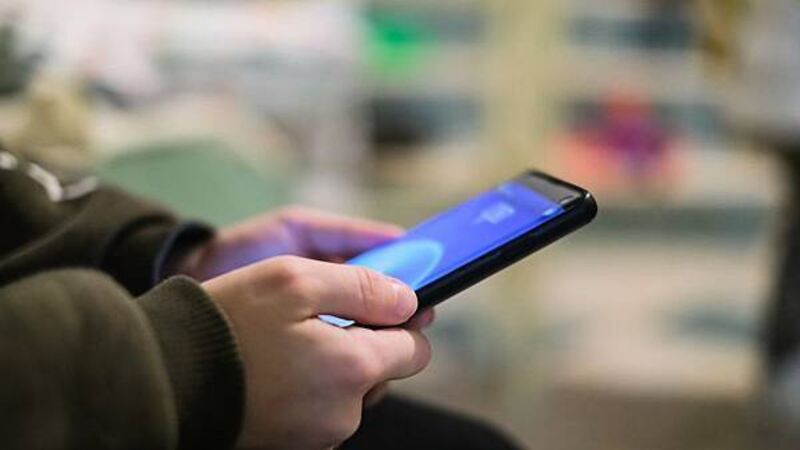Ireland will need dedicated clinic to deal with phone addiction, says professor

Sarah Slater
There is no question Ireland will need a dedicated clinic to deal with phone overuse or addiction, a professor of psychiatry at University College Dublin has said.
The number of mobile phones has spiralled with figures showing that there were 5.76 million devices in Ireland, which is the equivalent of 1.1 per person in 2023, more than the current population.
In the US, this figure is 1.2 mobile phones per person, according to figures from worlddata.info.
Professor Colin O’Gara, clinical professor of psychiatry at UCD said he has “no doubt that there will be mobile phone detox and rehabilitation clinics, and outpatient clinics dealing with this,” here in less than 15 years' time.
He said dealing with mobile device overuse or addiction will be "a mainstay treatment."
"There is an existential change in personal device usage due to the amount of GP referrals that have become more and more difficult to keep up with.
"Plainly, this is a massive issue and it will be bigger and bigger in time and such clinics will be needed without a doubt.’
Prof O’Gara said he has been seeing this at the coalface of addiction since 2013. He said we are all on the spectrum to overuse in some way and some people are using it way too much.
The apps on phones are also allowing people to partake in gambling, gaming, pornography and shopping, which are addictions themselves.
Within mobile phone usage are what Prof O’Gara calls "sub classifications", where the device is used as a distraction, an emotional regulator, impactor on tolerance and primacy being a decline in other activities.
"As a result of this there is psychiatric comorbidity of anxiety and a decline in a person's own well-being."
Central Statistics Office (CSO) figures show the majority of internet users, or 94 per cent, used the internet daily.
While almost all internet users aged 16 to 44 had gone online everyday or almost daily, 96 per cent of people aged between 45 to 59 years used the internet daily. This compared with 72 per cent of older internet users aged over 75.
Almost half of us (47 per cent) use our smartphones during meals and 70 per cent spend too much time on devices, a new Deloitte survey has found.
A survey of 1,000 people in Ireland was carried out as part of Deloitte’s Digital Consumer Trends report earlier this year, which also showed three-quarters of adults, or 74 per cent, tend to use their mobile phones as soon as they wake up, while 54 per cent said they tend to stay awake later than planned because of their devices. Over one third (34 per cent) check their phone at least 50 times a day and 15 per cent do so more than 100 times.
Almost half of those surveyed, or 47 per cent, admit they now use their smartphone or smartwatch to pay for goods and services in-store through digital wallets, up from 36 per cent in 2023.
Alex Cooney, chief executive of CyberSafeKids, noted that the World Health Organisation (WHO) has not classed over-use of social media as an addiction, which is in itself "controversial", she believes.
"It’s all about the money for social media companies that is created through the design and the harmful features attached," she said.
"That’s what needs to be tackled, not telling people they are spending too much time on social media or by companies putting up messages or blocks on age groups. It’s all about the metrics and algorithms."
Ms Conney stressed that devices used by children and indeed adults interfere with work, sleep, exercise, education and socialisation. "In extreme cases I have heard of people wearing nappies when they are gaming so they will not have to stop what they are doing and go to the bathroom."
In response to the "crisis" in phone over use, The Department of Health last September established an Online Health Taskforce, in recognition of the growing body of evidence, from Ireland and internationally, showing the links between certain types of online activity and physical and mental health harms to children and young people.
A Department of Health spokesperson said the taskforce is developing a "strategic public health response to these harms and will bring forward evidence-informed interventions and recommendations.
"These recommendations may include, but are not limited to, legislation, regulation, national guidelines, education, awareness campaigns, as well as additional health and social care supports."












